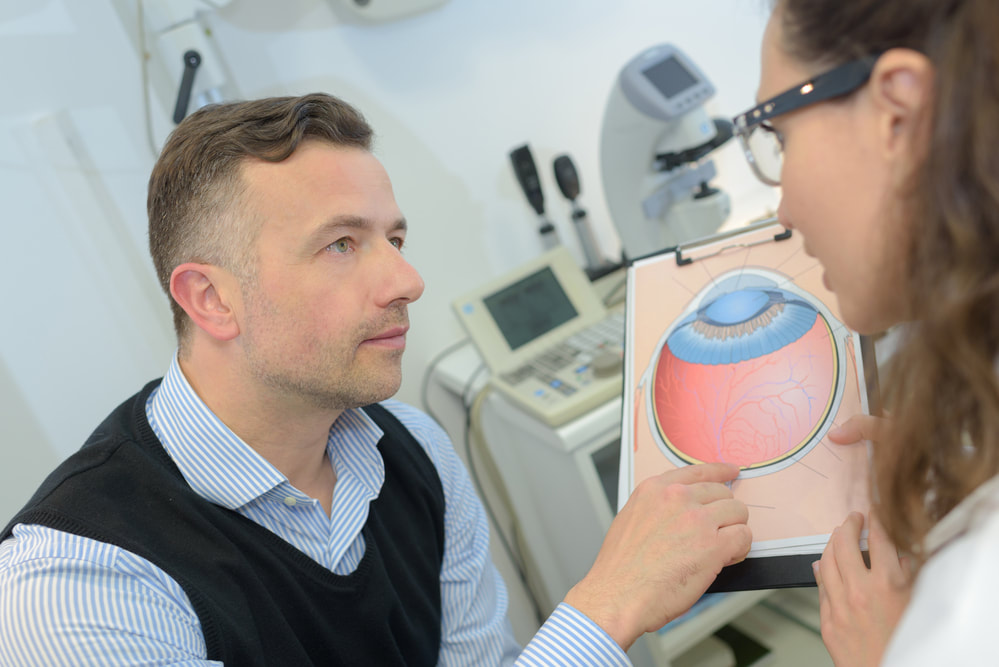How does diabetic retinopathy progress?According to the American Academy of Ophthalmology, there are two stages of diabetic retinopathy: Non-proliferative: Non-proliferative is the early stage of diabetic retinopathy. Some people do not even know they have the disease at this point. In the non-proliferative stage, the retinal blood vessels leak, which leads the retina to swell. Proliferative stage: The proliferative stage is the advanced stage of diabetic retinopathy. During this stage, an individual will usually have symptoms. Symptoms may include:
During the proliferative stage, new abnormal blood vessels form in the retina. The vessels are very fragile and may bleed into the gel-like structure called the vitreous in the middle of the eye. The bleeding can cause floaters in the eyes. Preventing diabetic retinopathyThe best way to prevent diabetic retinopathy is to prevent or reduce your risk of diabetes, but that is not always possible. Diabetic retinopathy can develop with type 1 or type 2 diabetes.
Type 1 diabetes is not preventable. It occurs due to a problem with the immune system, causing the body to destroy insulin-producing cells in the pancreas. However, type 2 diabetes is often associated with unhealthy lifestyle factors, such as being overweight. One of the best ways to prevent diabetic retinopathy is to decrease your risk of developing type 2 diabetes. To reduce your risk, consider the following:
Get regular eye exams: If you have diabetes, it is vital to get regular eye exams. During an eye exam, your eye doctor can spot changes before vision is lost. Treating the condition early may improve the outcome. Take a diabetes education class: A diabetes education class is a great way to learn about the disease. The more knowledge you have about managing diabetes, the better you can keep blood sugar levels under control. Monitor blood sugar levels often: Talk with your doctor about how often you should measure blood sugar levels. Keeping a close eye on blood sugar levels helps you determine if your diabetic treatment plan is working. Keep blood sugar levels in a healthy range: The most important way to prevent diabetic retinopathy is to keep your blood sugar levels in a healthy range. Good blood sugar control prevents high spikes in levels and potential damage to the retina. Discuss treatment options: If you do develop diabetic retinopathy, there are treatments available. Options may include:
If you have diabetes, we hope you can take the steps above to prevent diabetic retinopathy. If you have any questions on diabetic retinopathy or other eye health issues, we are happy to help. If you would like to ask whether an appointment with one of our eye doctors would be appropriate at this time, call our office at 508-746-8600. Comments are closed.
|
EYE HEALTH BLOGCategories
All
Archives
July 2024
|
|
Kadrmas Eye Care New England
55 Commerce Way, Plymouth, MA 02360
14 Tobey Road, Wareham, MA 02571 133 Falmouth Road (Rt 28), Mashpee, MA 02649 |
Phone Number:
1-508-746-8600 Hours: Monday through Friday — 8 AM – 4:30 PM |


 RSS Feed
RSS Feed
